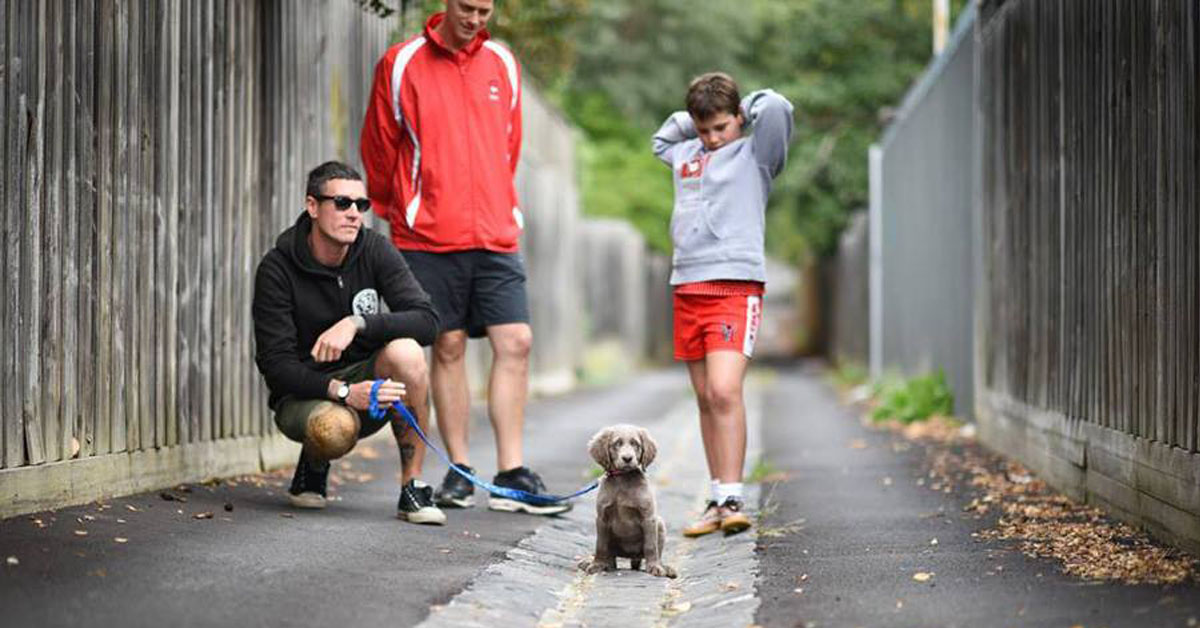4 things to consider before adopting a dog during the coronavirus crisis
Coronavirus restrictions have caused a surge in pet adoptions by those seeking companions during isolation to help them through the pandemic. In many cases, this is great news, but there are some considerations to be made before you bring home your ‘iso dog’.

Are You Getting a Dog for the Right Reasons?
Sure, you are spending a lot of time at home at the moment but how will your lifestyle look when you go back to work? Will you be able to exercise, train and spend as much time together in a few months? What about three years? There are a lot of ongoing costs to consider too, such as vaccinations, vet bills, parasite protection, council registration and obedience training to name a few. Whether you’re looking to rescue, adopt or purchase a dog, remember that owning a dog is a lifelong commitment with a variety of responsibilities. You need to make sure you can meet those responsibilities, so please slow down and think it through. Maybe consider temporarily fostering a dog instead (see a list of foster and rescue groups here). Dogs often end up in rescues or shelters when people get overwhelmed with the behaviour issues that arise due to the owner not realising how much responsibility it is. If purchasing from a breeder please read this advice to ensure that they're experienced and reputable. A puppy or dog from a responsible breeder will be healthy, temperamentally stable, appropriately socialised for their age, and importantly - the breeder will want to make sure it is going to the right home.
Promoting Independence
Whilst our dogs will certainly be enjoying all of this ‘extra time’ with us as we move to work from home due to COVID-19, it’s important they do not see this as ‘ the norm’. If you are bringing home a new puppy or dog, be sure to take a drive, a long walk or get yourself a takeaway coffee with and without them to assist in the development of independence and provide some protection against the development of separation anxiety.
When you are home, give your dog some time alone in their crate or in the back yard and at other times teach them how to stay on their mat so they learn not to follow you around.
Exercise and Socialisation
While dogs need appropriate physical exercise, many people forget they need enrichment in their lives through mental stimulation too.
Consider whether you can provide these needs when you return to work to keep your dog fulfilled, alleviate boredom and to help keep them entertained during the day.
What about socialising your puppy in this climate of social distancing? Contrary to popular belief, your puppy does not need to physically interact with every person and dog they come into contact with to ’socialise’ so ‘physical distancing’ may actually be in your favour. Socialising your dog is important but it needs to be done the right way. If bringing home a new puppy, you will need to be prepared to take them out with you and expose them to everyday life as much as possible up to the first 16 weeks of their life. Make sure to include as many sights, sounds and surfaces as you can think of. At home, you can set up obstacle courses out of everyday furniture and objects to build confidence and trust. Use your treats to reward them for effort.
How will you train your new pet without puppy school?
Training should start the moment you bring your new dog or puppy home and with COVID19 temporarily changing the way many are running puppy school or group classes, you’ll want to do your research ahead of time to ensure you have the right instruction and guidance from day one. Consider looking for a qualified dog trainer or behaviourist or a trainer that is running online classes.
Doing this will save you a lot of time and money later on.
Photo credit Jane Kupsch.

